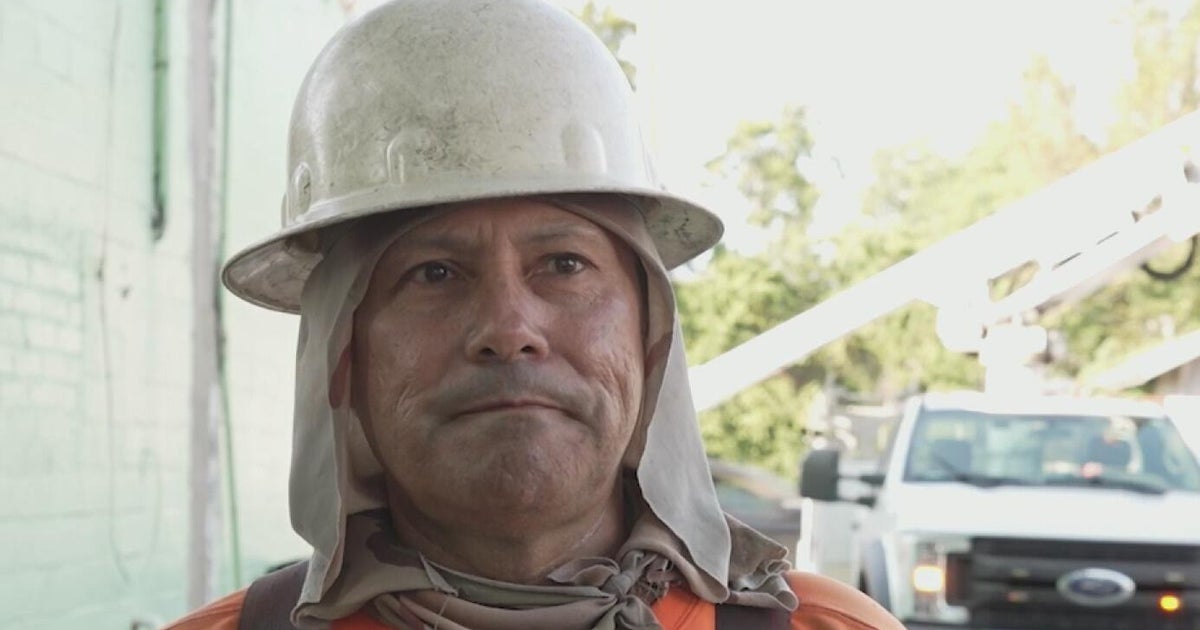Lineman Brian Abalos is used to danger. Every day, he is up in the air working on power lines.
“It is a dangerous job. It’s not an easy job, but it keeps my mind going and focused,” said Abalos.
But while he was focused on external dangers to his health, the one brewing inside his body took him by surprise.
“Yeah, it was a normal day like any other day. I worked, a full day’s work, then I came home, and I was locking up my truck, and that’s all I remember,” said Abalos.
Abalos suffered a ruptured brain aneurysm and passed out in his driveway.
“My wife found me probably, I don’t even know, I don’t even remember passing out. She found me on the ground,” he said.
Abalos was taken to Texas Health Harris Methodist Hospital Fort Worth, where Dr. Matthew Fiesta and his team rushed to save his life.
The immediate analysis was that Abalos was in serious danger.
“In his case, where his dissection was next to an important vessel that supplies the cerebrum and the fear was, well, if we sacrifice this vessel, it’s also going to take down an important vessel next to it, causing a stroke,” said Fiesta.
Fiesta says that without a new piece of technology, Abalos may not have made it.
“Before, you had to open up part of the skull and dissect down to the aneurysm and place a clamp on the neck. That takes the pressure off the aneurysm and keeps it from rupturing,” said Fiesta, “now we can guide catheters up and actually place metal coils called flow diverting stents or flow diversion embolization.”
Basically, Fiesta inserted a tiny metal mesh tube into Abalos’ body that allowed blood to flow to his brain. It saved his life and after just a few months, he’s already back at work.
“A lot of times, people can walk without assistance in daily living activities. He’s basically independent,” said Fiesta.
“You never know when something like that can happen, and it gives you a new perspective on how precious life is,” said Abalos, “I feel very grateful, I’m very grateful and very thankful. I give thanks every day.”
More from CBS News
